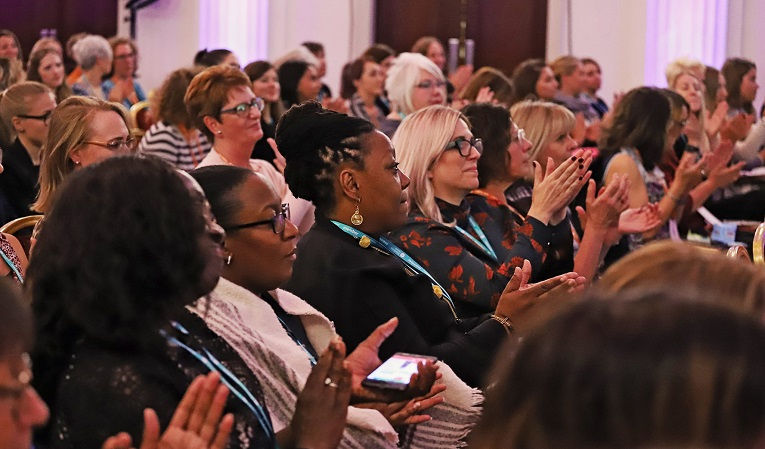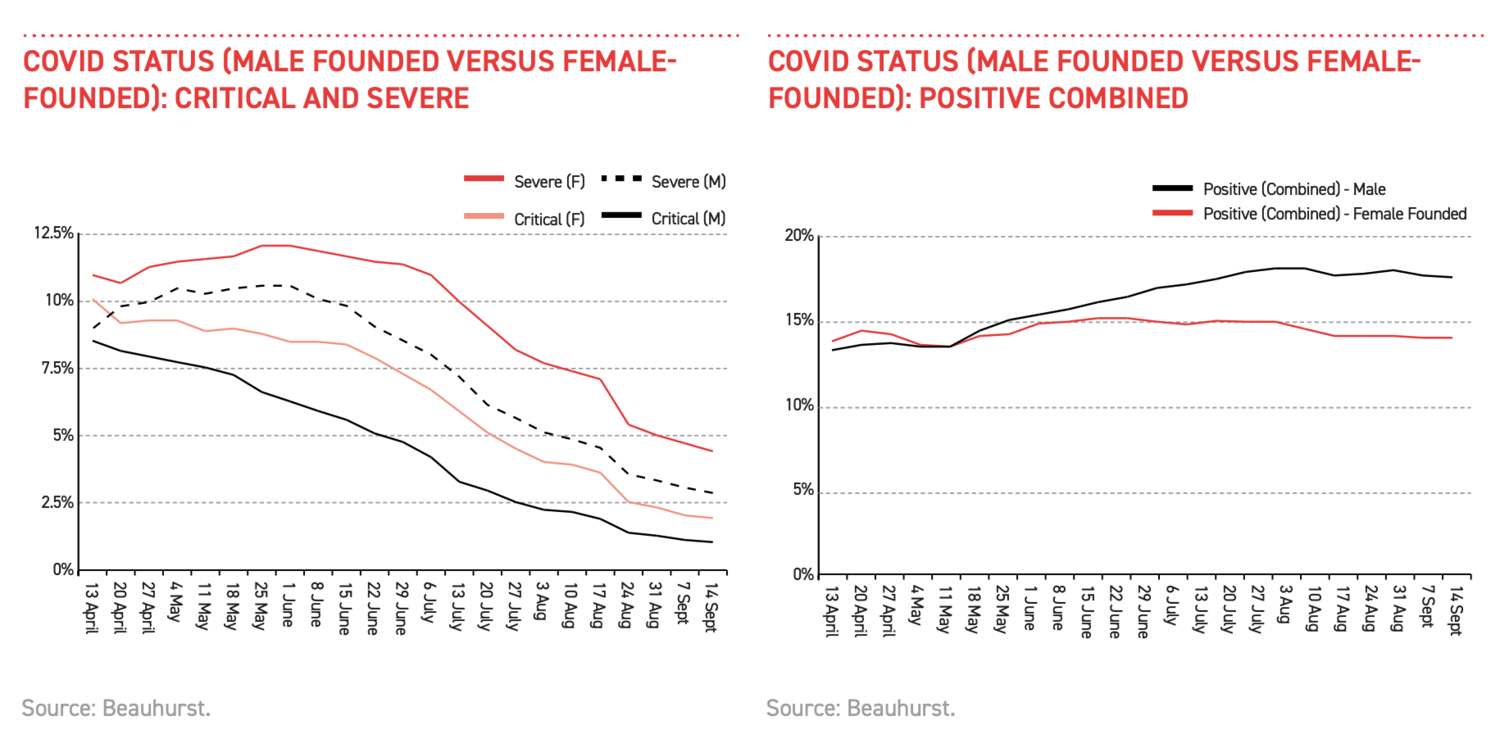Women in business more impacted by COVID-19 but female founders fight back

Posted: Tue 13th Oct 2020
High-growth companies led by female entrepreneurs have been disproportionately impacted by the coronavirus pandemic, according to a new report.
The study by the Entrepreneurs Network Female Founders Forum and Barclays found 21% of women have had their business severely disrupted by the crisis compared to 18% of men.
Factors behind it include the fact that women often took on greater childcare responsibilities during lockdown and they are more likely to run businesses in sectors most affected by the pandemic such as retail, hospitality and leisure. Many businesses focused on tech and IP, sectors in which females are less likely to start businesses, have seen growth during the pandemic.
The long term issue of women's access to finance has also persisted.
Data from Beauhurst shows that in the past 18 months, the average funding raise for start-ups with at least one female founder was less than half the average for firms with all-male founders. In 2020, only 13% of total equity investment went to female-founded start-ups and when it did, it tended to be for smaller amounts.
Female entrepreneurs fight back
Despite the challenges, there are signs of positivity.
In August, the outlook for high growth female-founded businesses began to approve and as of 14 September, less than 2% of the female-founded businesses being tracked were in a critical condition.

One reason, the study said, is the government's Future Fund convertible loan scheme which was set up to support high growth firms impacted by the pandemic. Of the 590 businesses selected, 83% are companies with all-female or mixed-leadership teams.
Encouraging financial institutions to back the Treasury's Investing in Women Code has also helped to address the gender funding gap. Since the launch of the Future Fund, 30 venture capital firms and angel groups have signed up.
Recommendations to boost female entrepreneurship
Despite the positive changes though, the report said "the COVID-19 pandemic has exacerbated, rather than diluted, the existing structural barriers that female entrepreneurs face".
It called on governments and those working with female entrepreneurs to focus on the need for resilience so female founders are better prepared for future crises. Research into the impact of the 2008 financial crisis found that companies that gained a lead during the recession were still, a decade later, in the top quintile of performers for their sector.
In addition, some changes due to the pandemic may benefit female founders in the long term. The report said trends such as an increase in remote working could make it easier to balance childcare with running a business.
With one in three UK companies still run by women, the study called for an increase in statutory shared parental pay so that it's equivalent to statutory maternity pay and extending tax free childcare to more flexible alternatives like app-based intermediaries.
As women are less likely to know other entrepreneurs personally and more likely to value formal networks, mentoring and peer-to-peer programmes should be a key part of business support, the report said, and organisations which encourage girls to pursue careers in STEM should be encouraged.
The support female founders are looking for
A separate survey as part of the Enterprise Nation She's Got This campaign, supported by O2 Business, TSB, UPS and Xero, found that despite the challenges of the pandemic, female founders are showing confidence.
Over a third of respondents said the crisis has made them more determined to succeed and 44% admitted they are now more likely to take risks and look for opportunities.
In terms of the support female entrepreneurs are looking for, 52% reported a need for funding, 43% said a supportive local network is a priority and the same number said they are looking to improve their digital skills.

